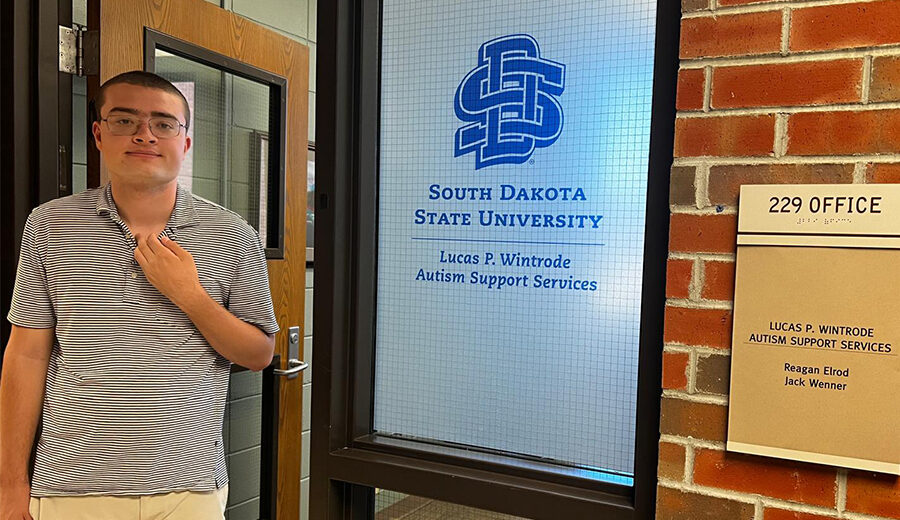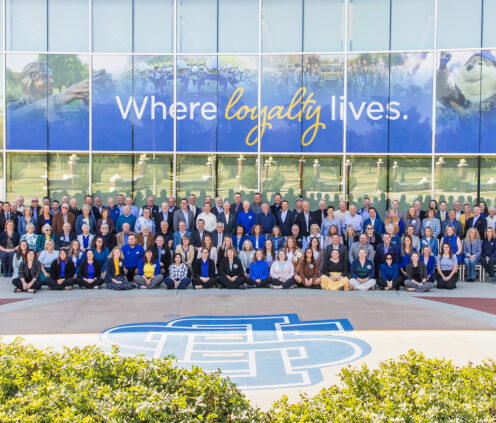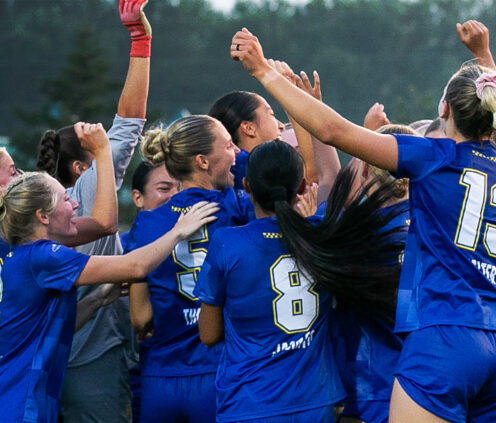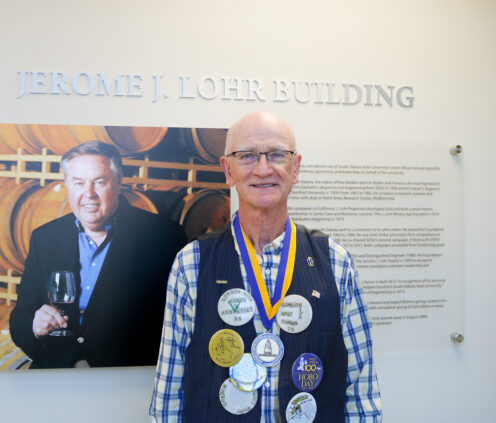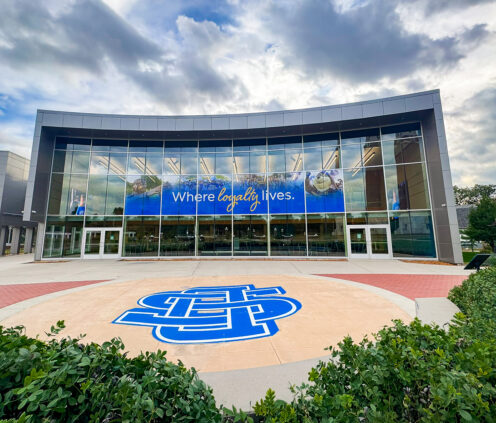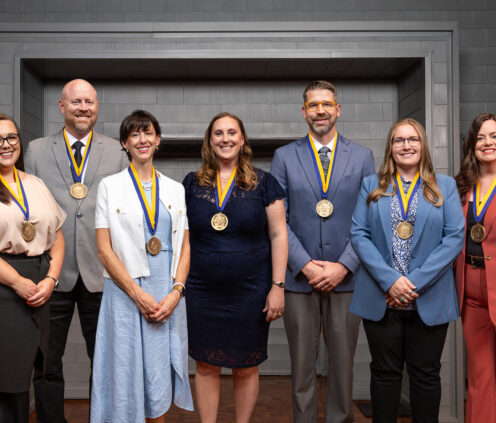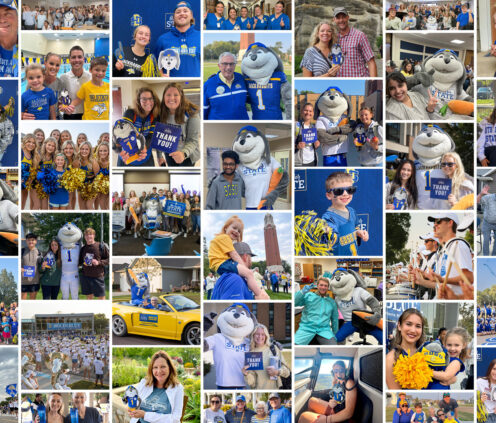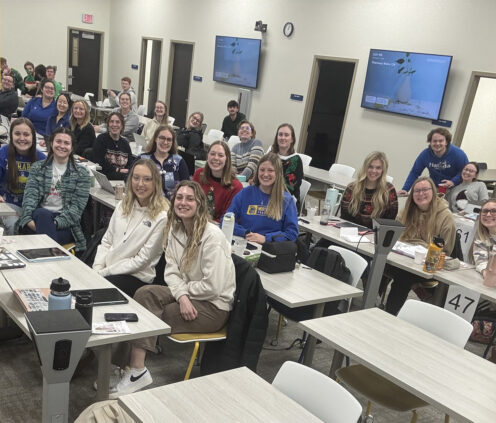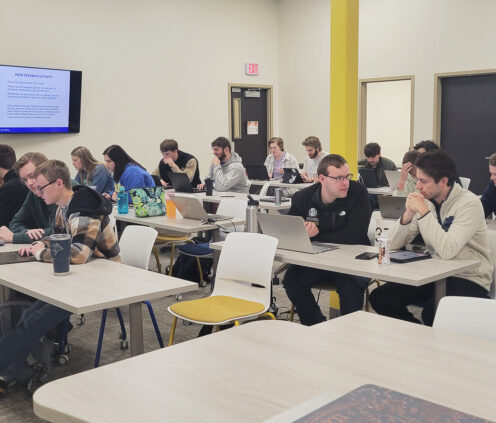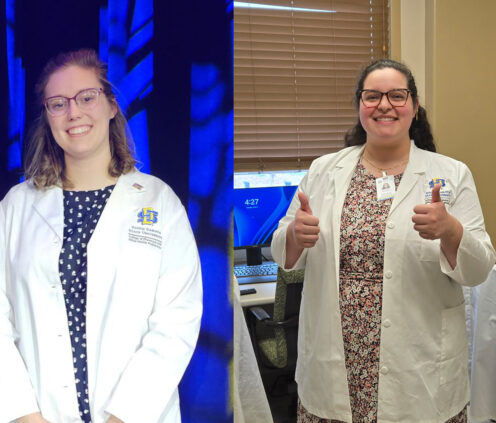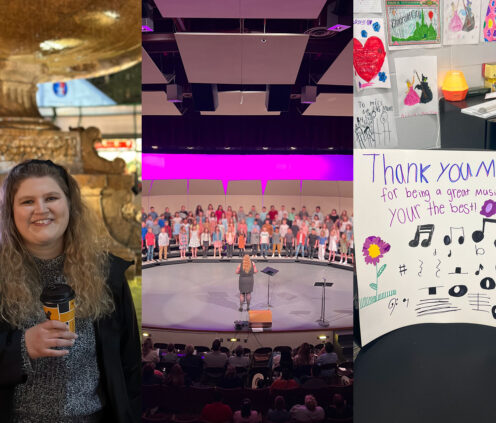Wintrodes Build Full Spectrum of Support
Inspired by their son’s journey in education, Paul and Maria Wintrode are fueling resources for autism studies at SDSU.
Lucas Wintrode exists in an inspirational and everchanging world. Diagnosed on the autism spectrum at the age of three, his life has already contained multitudes – difficult lows, triumphant highs, and every stage in between.
His parents, Paul and Maria Wintrode, have been by his side each step of the way. Though their lives initially felt upended with his diagnosis, the couple became steadfast advocates and lifelong learners, determined to find the resources that Lucas needed to function and thrive. The search for that support came with a significant learning curve, along with countless experiences that would inform a transformation in autism studies at SDSU.
Lucas’s early years following his diagnosis were often tumultuous. He was particularly triggered by flashing lights and loud noises, overstimulated and prone to sensory overload.
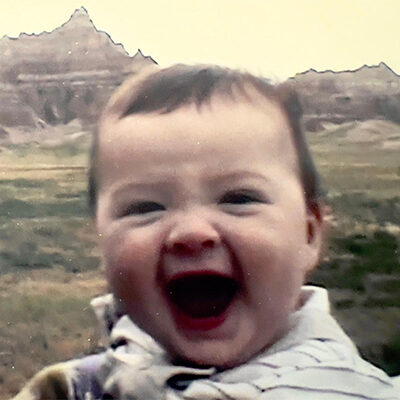
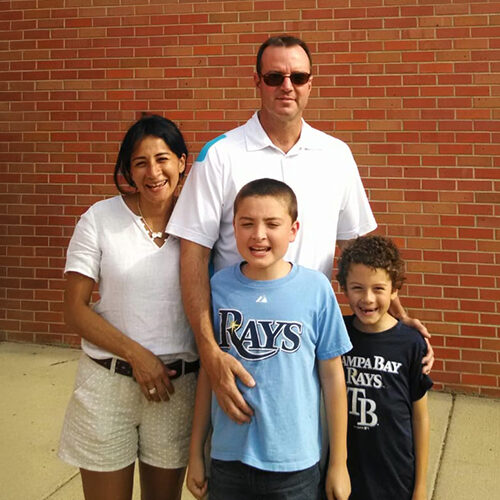
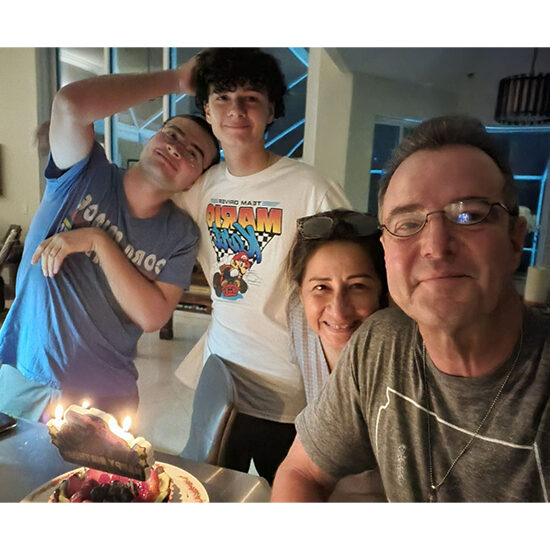
Living close to the Rays Stadium in St. Petersburg, Florida, Paul and Maria were (and remain to this day) avid baseball fans. They dreamed of sharing a game with Lucas and his younger brother, Eric. On his first visits to the stadium, Lucas never left his stroller, ears covered and hands clasped over his eyes. With each subsequent game, he inched out of his shell a bit further, daring to peek through his fingers, listen to the cheers of the crowd, and eventually sample an ice cream cone, eyes and ears uncovered. It was steady progress at his own pace, tiptoeing out of the world as he knew it with caution.
Now 20 years old, Lucas is a high school graduate who recently enjoyed a Pit Bull and Enrique Iglasias concert with Maria, who's from Nicaragua; the two share a passion for Latin music. It’s a far cry from his initial forays into the Rays Stadium, tremendous improvement for a young man who didn’t speak in full sentences until the age of ten.

What, then, is the answer to his evolution?
Early diagnosis and multi-faceted levels of therapy and support are key, explained Paul. “If you catch autism early enough and get support in place, the person has a higher chance to excel. Lucas used to be considered moderate to severe; now, he’s high-functioning and employable.”
Paul and Maria have a wealth of experience when it comes to the autism spectrum, and it was knowledge hard learned. The Wintrodes today divide their time between Weston and St. Petersburg, Florida, cities chosen because of the resources and programming they found for Lucas. Throughout Lucas’s life, they’ve investigated outreach and education available for those on the spectrum, spanning both coasts and beyond.
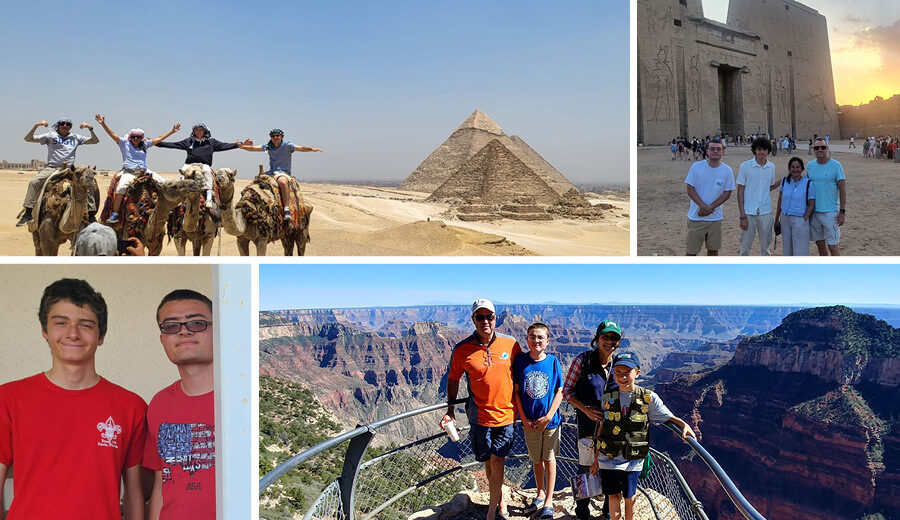
The family’s frequent travels offered them a wide gaze at the stigma surrounding the disorder and the lack of awareness about it. While they found a hub of support in Florida, Paul and Maria noticed a gap in their many visits to South Dakota State. As a result, the Wintrode family has funded multiple efforts to build understanding and education when it comes to those on the spectrum: an endowed professorship, an endowed scholarship, and a support fund, all bearing Lucas’s name.
Paul and Maria’s respect for education and spirit of philanthropy are traits that run in the family, particularly when it comes to South Dakota State. Paul’s father, Maurice, was a 1948 graduate studying history and political science. His aunt and uncle, Virgil and Josephine Wintrode, established the Wintrode Student Success and Opportunity Center in 2007, paving the way for heightened Jackrabbit resources. When Paul first visited SDSU 25 years ago, it was to settle Virgil’s estate, and the visit marked the beginning of an enduring relationship with the university.
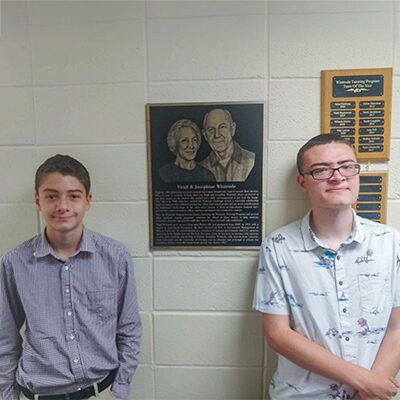
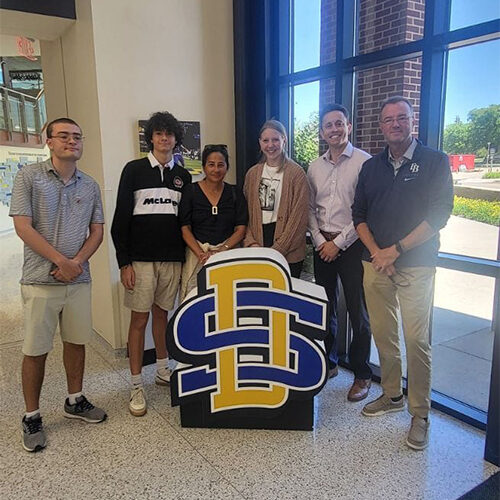
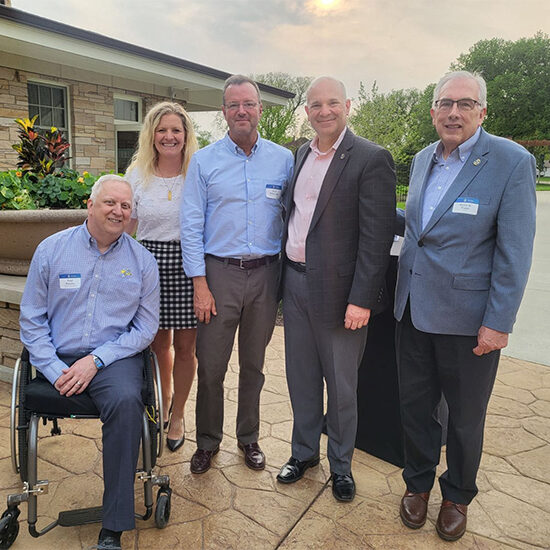
“We wanted to build more awareness and to support more education on campus,” explained Paul.
Despite the couple not being alumni themselves, when it came to giving back at the university, he said, “It was not a question of if and where, but what and when.”
The what and when turned out to be several initiatives for bolstering outreach, understanding, and therapy for individuals with autism. Paul and Maria noted that many educational institutions lacked resources for autistic students, choosing to simply separate those students from the rest of their classmates. Conversely, where many schools offered programming for children on the spectrum, local families were often unable to afford it. Being all too familiar with the struggle for help – and the right kind of help, with cutting-edge behavioral, speech, comprehension, and social therapies – the couple decided to take all they’d learned and apply the insight to uplifting autism studies and students at SDSU.
Funding for the Wintrodes’ endowed professorship fuels opportunities for the holder of the position to elevate support and education in autism spectrum disorder. The faculty member can utilize the perpetual funds to hold workshops and conferences open to all: students, teachers, learners on the spectrum, and parents looking for insight. The Wintrodes’ generosity has also catalyzed additional courses centered on autism studies, set to begin in 2025.
Maria is particularly excited about the conferences ongoing in Lucas’s name. The family views these events as the chance for the community to unite in a common cause and to address the many challenges surrounding both students on the spectrum and the educators who may not have the knowledge or resources to adequately support them. In effect, the Wintrodes are working to enact the changes they once were unable to find in the education arena. With their perspective as parents, Paul and Maria know how daunting the task of finding help can be.
“When Lucas was diagnosed around age three or so, we had no idea what our life was going to be like. As things progressed, we had a lot of heartache and hard times,” said Maria. “The thing I want to tell everybody is that it gets better, and there is hope. The more therapy autistic students get, and the more connections are formed in the brain, they can do better.”
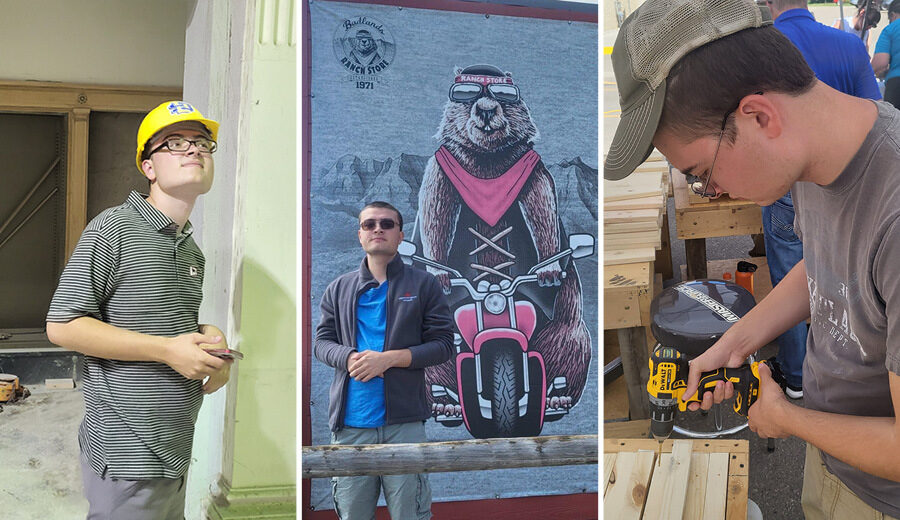
The endowed scholarship support provided by the Wintrodes is targeted to Jackrabbits who want to someday teach students on the spectrum. To prepare future educators, Lucas’s parents intend to supply the university with the means and resources to ensure the need for teachers specializing in autism spectrum disorder can be met – and it’s a need on the rise. When Lucas was born, 1 in 150 children were diagnosed with autism. As of 2024, that statistic has skyrocketed to 1 in 36, per the CDC.
The ever-growing number of autistic learners calls for teachers who are prepared to meet those learners where they are, rather than attempting to confine students into curriculum that isn’t designed for the way they think or function. Autism is not a one-size-fits-all disorder, and Jackrabbit teachers of tomorrow can train for the customized learning pathways needed to reach children on the spectrum, thanks to the Wintrodes’ generosity and vision.
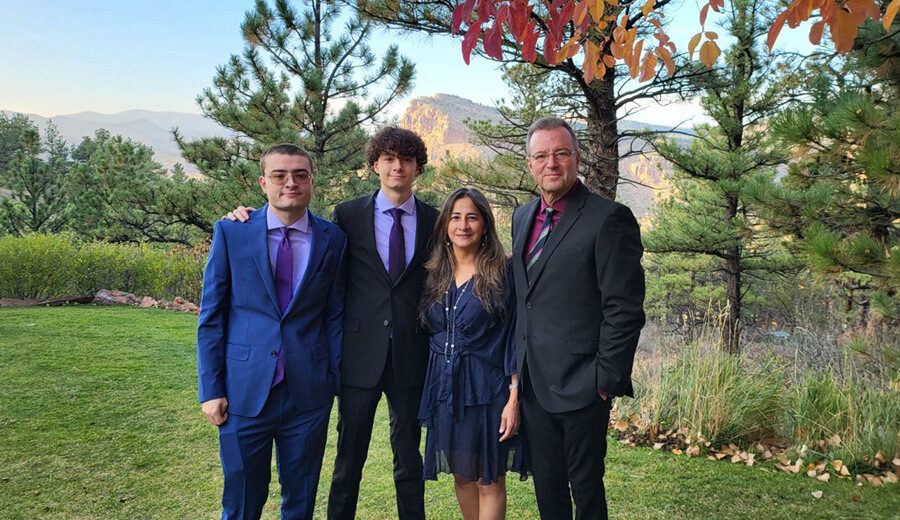
As Paul put it, “These kids change in spurts. They may go a long time with no progress, and then for whatever reason, whatever event, perhaps due to their aging, they suddenly are talking more, engaging more. Some spurts can be forced, some not. Many of the more successful programs we’ve seen have provided a mentorship element, almost a buddy system.”
Paul and Maria cited the critical aspect of social skills for those on the spectrum, with a lack of those skills often keeping people like Lucas at bay from their peers. With their funding, the couple hope that SDSU can implement a similar program, in which autistic students have a mentor to help them through daily life. Even the simple act of having someone to eat lunch with at school, Paul and Maria explained, can make an incredible difference for people like Lucas.
Maria WintrodeThe key is to let everybody have an idea of what autism is. The more people that help those on the spectrum – teachers, friends, doctors, everybody – it can make their lives so much more fulfilling.
Letting everyone have an idea of what it’s like to navigate autism, either as someone diagnosed or as a loved one, is a main goal for Lucas’s parents. It’s a lesson they’ve been learning for much of their son’s life and one they’ll continue to study for the rest of theirs.
Thanks to the generosity of the Wintrode family, students on the spectrum will be better equipped with the tools, resources, funding, and educators to pursue their own journey like Lucas. They’ll have a chance to interact with peers, to have teachers reach them in new ways, and to strive for goals once thought unattainable. With awareness and understanding will come progress for all, on the spectrum or not.
As Maria reflected, “People today spend so much time trying to force kids like Lucas into our world. I think it’s time for us to step into their world, instead.”
